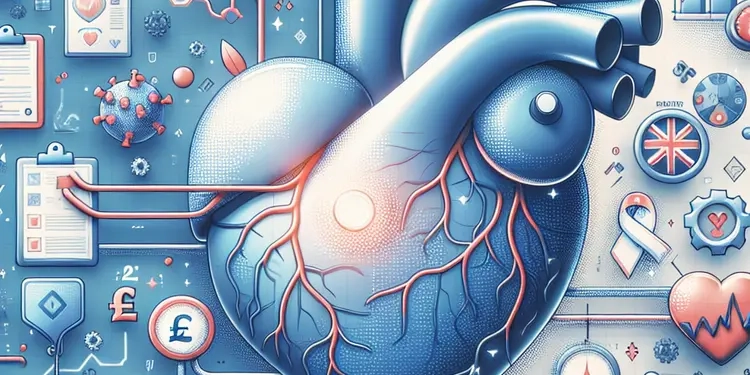
Find Help
More Items From Ergsy search
-
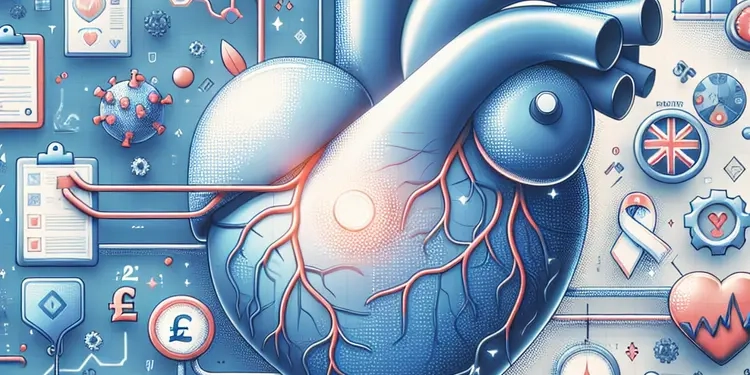
What is heart valve disease?
Relevance: 100%
-

What causes heart failure?
Relevance: 52%
-
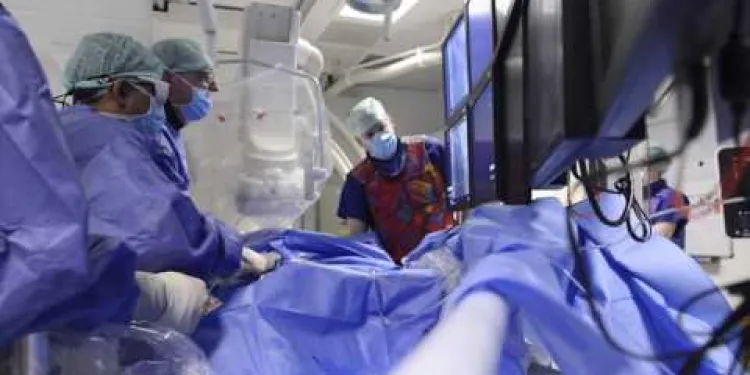
What is it like having a Transcutaneous Aortic Valve Implant (TAVI)?
Relevance: 51%
-

Heart Failure : The normal heart
Relevance: 42%
-
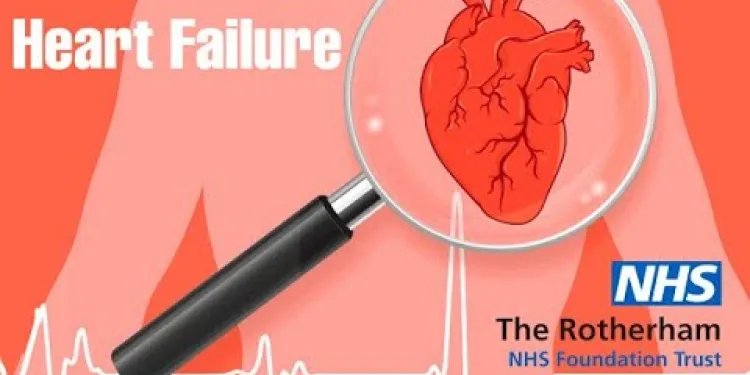
Heart Failure : What is heart failure?
Relevance: 41%
-
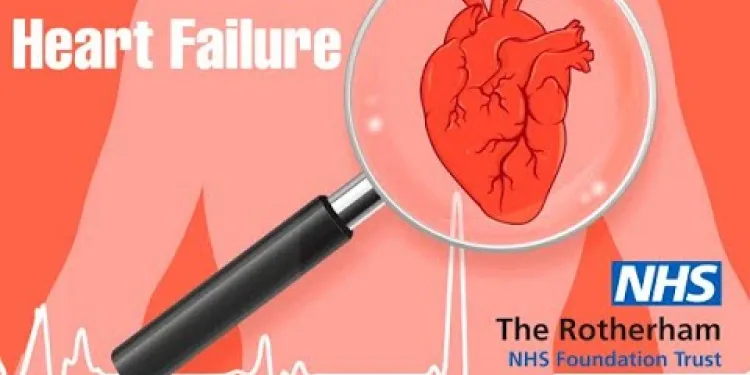
Heart Failure : Heart failure that cannot pump
Relevance: 40%
-

Heart failure introduction
Relevance: 39%
-

Can lifestyle changes reduce the need for medication for heart disease prevention?
Relevance: 38%
-
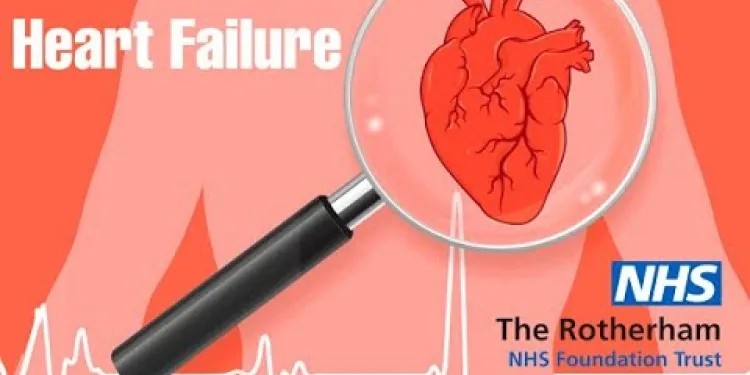
Heart Failure : Symptoms of heart failure
Relevance: 38%
-
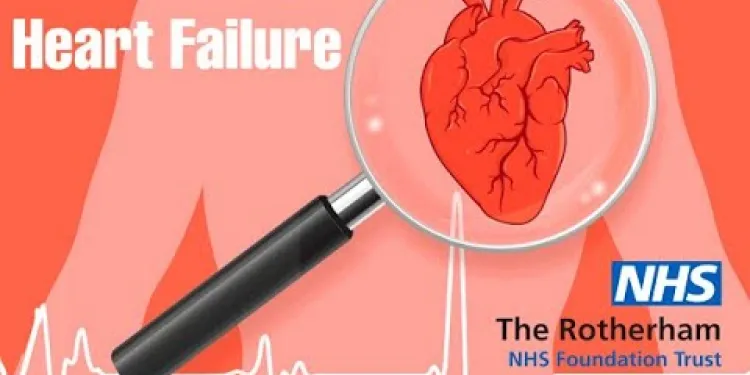
Heart Failure : When the heart becomes stiff?
Relevance: 37%
-

New Study Links Diet Soda to Increased Risk of Heart Disease
Relevance: 37%
-

Can patients with drug allergies still take heart disease medications?
Relevance: 37%
-
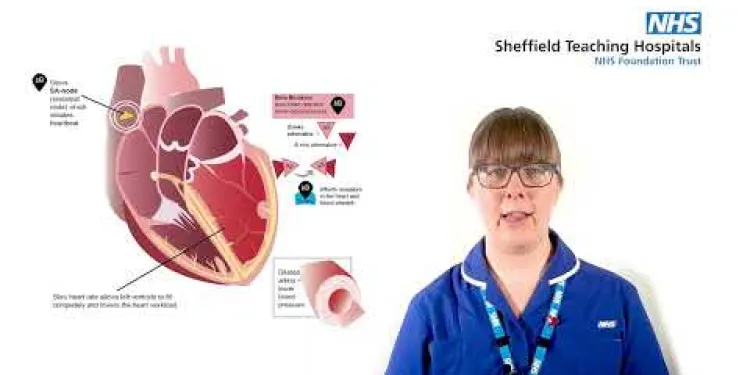
Medicines of the heart
Relevance: 35%
-

How often should cholesterol levels be tested when taking heart disease medication?
Relevance: 35%
-

Can heart failure be prevented?
Relevance: 33%
-

Heart stents
Relevance: 32%
-

Is it possible to prevent a heart attack?
Relevance: 31%
-

Will a heart bypass make me live longer?
Relevance: 31%
-
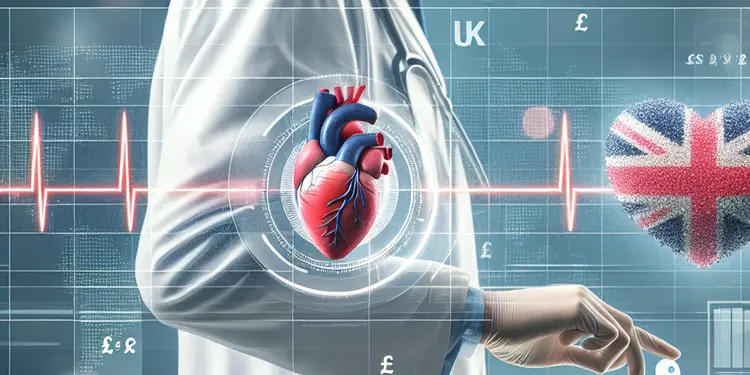
How is heart failure diagnosed?
Relevance: 30%
-

Are heart attack symptoms different for people with diabetes?
Relevance: 30%
-

Are there specific fats that support heart health?
Relevance: 30%
-

What is the prognosis for someone with heart failure?
Relevance: 30%
-

What are the risk factors for a heart attack?
Relevance: 30%
-

Is my abnormal heart rhythm dangerous?
Relevance: 30%
-

Is my abnormal heart rhythm dangerous?
Relevance: 29%
-
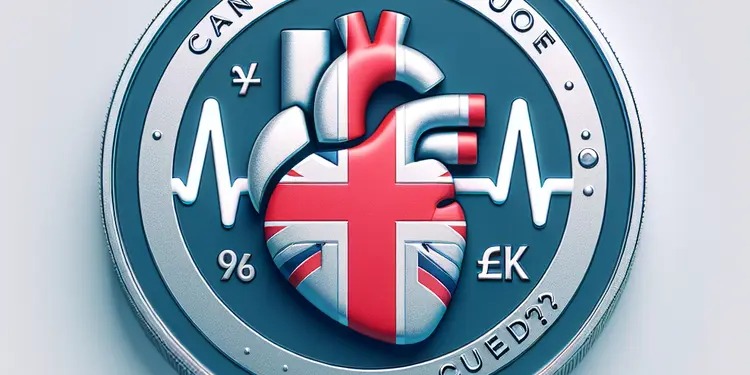
Can heart failure be cured?
Relevance: 29%
-

Does orange juice have health benefits for the heart?
Relevance: 29%
-
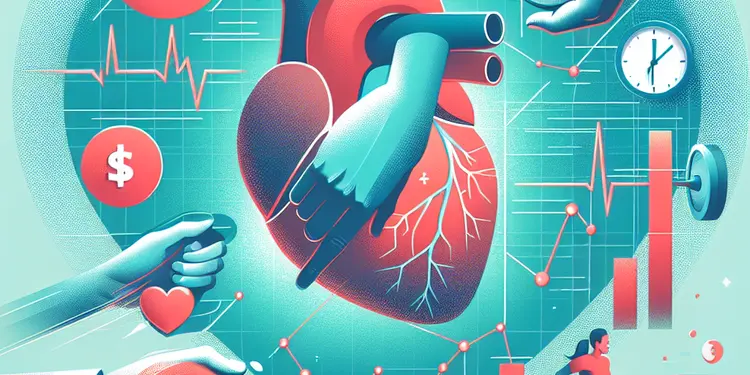
Can physical exertion trigger a heart attack?
Relevance: 29%
-

Can women have different heart attack symptoms than men?
Relevance: 29%
-
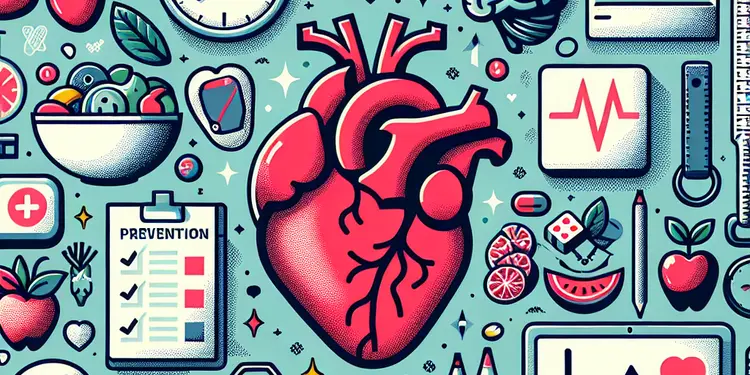
What is the role of lifestyle modification in heart attack and stroke prevention?
Relevance: 29%
-

Do over-the-counter medications help in preventing heart attacks and strokes?
Relevance: 29%
-

Are there different types of heart failure?
Relevance: 28%
-
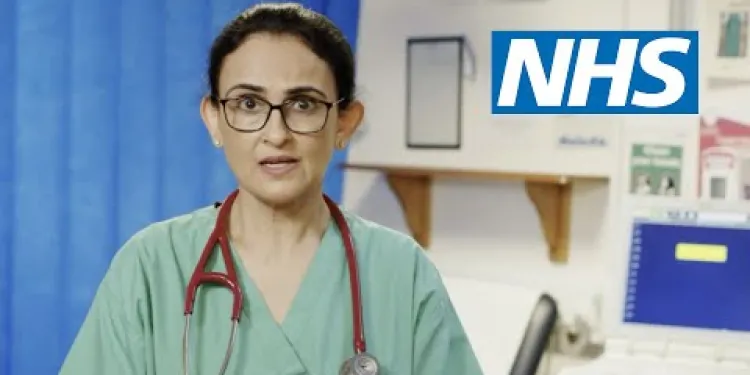
Heart Attack Stories | NHS
Relevance: 28%
-

How do beta-blockers contribute to heart attack prevention?
Relevance: 28%
-
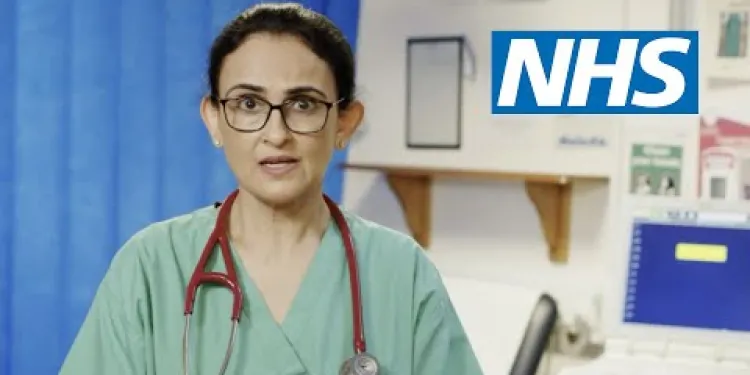
Heart Attack Stories | NHS
Relevance: 28%
-

What should I do if I'm experiencing heart attack symptoms?
Relevance: 27%
-

Can diabetes medications also help reduce heart attack risk?
Relevance: 27%
-
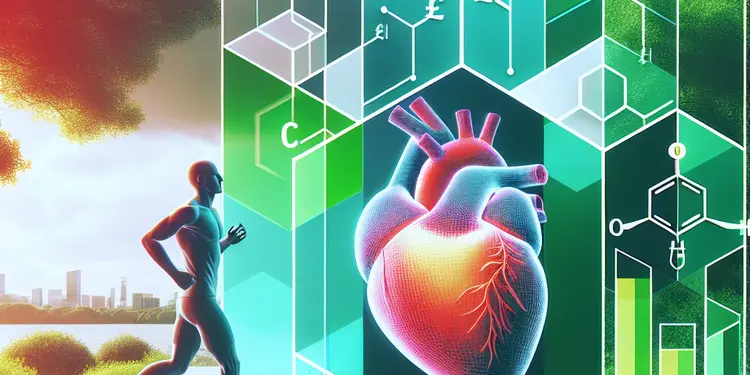
What is the role of PCSK9 inhibitors in heart attack prevention?
Relevance: 27%
-

Lyme disease: What is it?
Relevance: 26%
-

Does coffee consumption have any long-term heart health effects?
Relevance: 26%
What is Heart Valve Disease?
Heart valve disease is a condition that affects one or more of the four valves in the heart. These valves ensure that blood flows in the correct direction through the heart's chambers and to the rest of the body. Each valve ideally opens and closes fully with each heartbeat, regulating blood flow. However, when they malfunction, it can disrupt this critical process and lead to various health issues.
Types of Heart Valve Disease
There are primarily two types of heart valve disease: stenosis and regurgitation. Stenosis occurs when a valve does not open fully, causing a reduction in blood flow. Regurgitation, on the other hand, happens when a valve does not close properly, leading to blood leaking backward. These conditions can affect different valves, including the mitral, aortic, tricuspid, and pulmonary valves.
Causes and Risk Factors
Heart valve disease can be congenital, meaning it is present at birth, or acquired over time. Acquired valve disease may result from factors such as age-related changes, infections like rheumatic fever, or conditions such as high blood pressure. Other risk factors include a history of certain infections, previous heart problems, or lifestyle factors like smoking and an unhealthy diet.
Symptoms and Diagnosis
Symptoms of heart valve disease can vary depending on the severity and the affected valve. Common symptoms include shortness of breath, fatigue, dizziness, chest pain, and palpitations. In more severe cases, individuals may experience swelling in the ankles or feet. To diagnose heart valve disease, doctors often use a combination of physical examinations, listening for heart murmurs, and diagnostic tools like echocardiograms, ECGs, or MRI scans.
Treatment Options
Treatment for heart valve disease depends on the severity of the condition. In mild cases, monitoring and regular follow-ups may suffice. Medications might be prescribed to manage symptoms or prevent further complications. In more severe cases, surgical interventions such as valve repair or replacement might be necessary. Advances in medical technology have also introduced less invasive procedures like transcatheter aortic valve implantation (TAVI), which can be suitable for certain patients.
Living with Heart Valve Disease
Managing heart valve disease involves regular medical check-ups and adopting a heart-healthy lifestyle. Patients are advised to follow a balanced diet, exercise regularly, and avoid smoking. Managing other health conditions such as high blood pressure or diabetes is also crucial. Participation in cardiac rehabilitation programs can offer additional support and guidance for patients.
What is Heart Valve Disease?
Heart valve disease is a problem with the heart's valves. The heart has four valves. Valves help blood flow the right way in the heart and body. If the valves do not work properly, it can cause health problems. It's important for the valves to open and close well with each heartbeat.
Types of Heart Valve Disease
There are two main types of heart valve disease: stenosis and regurgitation. Stenosis happens when a valve doesn't open enough, making it hard for blood to flow through. Regurgitation happens when a valve doesn’t close properly, which makes blood leak backward. These problems can happen in different valves like the mitral, aortic, tricuspid, and pulmonary valves.
Causes and Risk Factors
Heart valve disease can start at birth or develop later. It can happen because of getting older, infections like rheumatic fever, or high blood pressure. Other things that can increase the risk include past infections, previous heart problems, or bad habits like smoking and not eating well.
Symptoms and Diagnosis
Symptoms of heart valve disease can include feeling short of breath, being very tired, feeling dizzy, chest pain, and a fast heartbeat. Sometimes people might notice swelling in their ankles or feet. To find out if someone has heart valve disease, doctors listen to the heart and might use tests like ultrasounds, ECGs, or MRI scans.
Treatment Options
Treatment depends on how bad the heart valve disease is. If it's mild, doctors might just watch and check it regularly. Medicines can help with symptoms or stop more problems. If it’s serious, surgery might be needed to fix or replace the valve. There are also newer, less invasive methods available for some patients.
Living with Heart Valve Disease
Living with heart valve disease means visiting the doctor regularly and living a heart-healthy life. This includes eating a balanced diet, staying active, and not smoking. It's also important to manage other health issues like high blood pressure or diabetes. Joining cardiac rehab programs can help with extra support and advice.
Frequently Asked Questions
What is heart valve disease?
Heart valve disease occurs when one or more of the heart's valves do not function properly, affecting blood flow through the heart.
What causes heart valve disease?
Heart valve disease can be caused by congenital defects, age-related changes, rheumatic fever, infections, and other conditions that damage the heart valves.
What are the symptoms of heart valve disease?
Symptoms can include shortness of breath, fatigue, swollen ankles and feet, chest pain, and an irregular heartbeat.
How is heart valve disease diagnosed?
Doctors use physical exams, echocardiograms, electrocardiograms, chest X-rays, and cardiac catheterization to diagnose heart valve disease.
Can heart valve disease be treated?
Yes, treatment options include lifestyle changes, medications, and surgeries like valve repair or replacement.
What is valve stenosis?
Valve stenosis is a condition where the valve opening is narrowed, restricting blood flow through the valve.
What is valve regurgitation?
Valve regurgitation is a condition in which the valve doesn't close properly, causing blood to leak backward into the heart chamber.
Who is at risk for heart valve disease?
Risk factors include advanced age, history of rheumatic fever, infections, and certain heart conditions or congenital defects.
Can lifestyle changes help manage heart valve disease?
Yes, healthy lifestyle changes like a balanced diet, regular exercise, and avoiding tobacco can help manage symptoms and improve heart health.
What are the surgical options for heart valve disease?
Surgical options include valve repair (often preferred) or valve replacement with either mechanical or biological valves.
What is a heart murmur?
A heart murmur is an unusual sound heard during a heartbeat, often related to abnormal blood flow through the heart valves.
How common is heart valve disease?
Heart valve disease is fairly common, especially in older adults, with prevalence increasing with age.
Can heart valve disease be prevented?
While some forms are congenital and not preventable, maintaining good heart health and treating infections promptly can reduce risk.
What is a bioprosthetic valve?
A bioprosthetic valve is a type of valve replacement made from biological tissue, often from pigs or cows.
What is a mechanical heart valve?
A mechanical heart valve is an artificial valve made from durable materials that requires long-term anticoagulation therapy.
What is rheumatic heart disease?
Rheumatic heart disease is a condition resulting from rheumatic fever that affects the heart valves, leading to valve damage.
Are there any non-surgical treatments for heart valve disease?
Medications and lifestyle changes can help manage symptoms of heart valve disease but may not correct the underlying valve issue.
What is an echocardiogram?
An echocardiogram is an ultrasound of the heart used to assess the structure and function of the heart and valves.
What role does age play in heart valve disease?
Age-related changes can lead to valve calcification and degeneration, increasing the risk of heart valve disease in older adults.
What is valvuloplasty?
Valvuloplasty is a minimally invasive procedure to widen a narrowed valve by inflating a balloon inside the valve.
What is heart valve disease?
Heart valve disease is when one or more heart valves do not work properly.
Valves are little doors inside your heart. They help blood go the right way.
If a valve does not open or close well, it can cause problems.
Tools that might help you understand better:
- Watch videos about the heart.
- Look at pictures of the heart.
- Ask a doctor or nurse if you have questions.
Heart valve disease happens when one or more of the heart's valves do not work right. This makes it hard for blood to move through the heart.
What makes heart valve disease happen?
Heart valve disease can happen for different reasons. Here are some of them:
- Getting Older: As people get older, their heart valves might not work as well.
- Infections: Some illnesses can hurt the heart valves, like strep throat if it turns into a big problem.
- Problems at Birth: Some people are born with heart valves that are not the right shape.
Here are some tips to make reading easier:
- Use Simple Words: Try to use simple words and short sentences.
- Read Out Loud: Reading out loud can help understand better.
- Take Breaks: It's okay to take breaks while reading to help you think.
Remember, if it's hard to understand, you can ask someone to help explain it.
Heart valve disease happens when the heart's valves are not working properly. This can happen because:
- Someone is born with heart valve problems.
- As people get older, their heart valves change.
- They had a sickness called rheumatic fever.
- They had an infection that hurt their heart valves.
- Other health problems that damage the heart valves.
If you need help reading, try using an audiobook or a text-to-speech app to listen instead of reading. A friend or family member can also help by reading with you.
What happens if your heart valve is not working properly?
Signs you might feel or see are:
- Finding it hard to breathe.
- Feeling very tired.
- Puffy or big ankles and feet.
- Pain in your chest.
- Heartbeat that is not regular.
Tools that can help:
- A friend to help read and understand.
- Apps or devices to remind you about appointments.
- Pictures to show what you are feeling.
How do doctors check for heart valve disease?
Heart valve disease means there is a problem with the valves in the heart. Valves help blood flow the right way.
How do doctors find it?
1. Ask questions: The doctor will ask about your health and any problems you have.
2. Listen to your heart: The doctor will listen to your heart with a stethoscope. This helps them hear if the valves are working well.
3. Take pictures: The doctor may use a machine called an echocardiogram. It makes pictures of your heart. This helps the doctor see how the valves are working.
Tools to help understand:
- Ask for pictures: Sometimes pictures or models help explain what is happening.
- Ask questions: If you do not understand, ask the doctor to explain again.
- Support: Bring a friend or family member to the appointment to help listen and ask questions.
Doctors use different tests to find out if someone has a heart valve problem. These tests include checking the body (a physical exam), using a special machine to look at the heart (an echocardiogram), checking the heart's electrical signals (an electrocardiogram), taking pictures of the chest (chest X-rays), and using a small tube to look inside the heart (cardiac catheterization).
Can doctors help with heart valve problems?
Yes, doctors can help people with heart valve problems. They have special ways to fix or replace the valves in your heart. This can help your heart work better. Here are some things that can help:
- A doctor might give you medicine to help your heart.
- Sometimes, doctors do a small surgery to make the valve better.
- In some cases, doctors might need to use a new valve.
It is important to talk to a doctor if you have heart valve problems. They can tell you the best way to help your heart.
Yes, there are ways to help. You can change how you live, take medicine, or have an operation to fix or replace the heart valve.
What is valve stenosis?
Valve stenosis means a heart valve is too narrow. This makes it hard for blood to flow through.
Tips to help understand:
- Break big words into smaller parts (e.g., valve stenosis: valve + sto-no-sis).
- Use pictures or videos to see how the heart works.
- Ask someone to explain it with simple words.
Valve stenosis means the valve is too tight. This makes it hard for blood to go through.
What is valve regurgitation?
Valve regurgitation means a heart valve does not close properly.
This makes blood flow the wrong way in the heart.
If you want help to understand this better, you can:
- Look at pictures or videos about the heart.
- Ask someone to explain it to you.
- Use apps that read text out loud.
Valve regurgitation happens when a heart valve does not close right. This makes the blood go back the wrong way into the heart.
If you want to understand more, try using simple pictures or videos. You can also ask someone to explain it to you in easy words.
Who can get heart valve problems?
Some people have a higher chance of getting heart valve problems. Here are some groups who might have a higher risk:
- Older People: As people get older, their heart valves can get weaker.
- Family History: If family members have heart valve problems, you might too.
- Past Health Problems: If you had health issues like infections with your heart.
- Born with Heart Issues: Some people are born with heart problems.
- Other Health Problems: Having other health problems can also affect your heart.
If you are worried about your heart, talk to a doctor. They can help you understand your risk.
Using pictures or videos might also help you learn more about heart valve problems.
Things that can make heart problems more likely are getting older, having had rheumatic fever, getting infections, and being born with certain heart problems.
Can changing how you live help heart valve disease?
Heart valve disease means the heart valves don't work right. Changing how you live might help you feel better.
Here are some things you can do:
- Eat healthy food like fruits and veggies.
- Exercise a little each day, like walking.
- Try to rest and sleep well.
- Don't smoke or breathe in smoke.
- Take medicine if the doctor says to.
Ask a doctor or nurse for help and tips. They can help you make a plan.
You can also use pictures and simple reminders to help you understand and remember.
Yes, making good choices can help your heart. Eat healthy food, exercise often, and don’t smoke. This can make you feel better and keep your heart strong.
What are the surgery choices for heart valve disease?
Heart valve disease means that a valve in the heart is not working properly. Doctors can help fix this with surgery.
Here are some surgery choices:
- Repair the Valve: Doctors fix the valve so it works better.
- Replace the Valve: Doctors take out the old valve and put in a new one.
It's important to talk to a doctor to find out which choice is best for you.
Tools that can help you:
- A trusted friend or family member: They can go with you to the doctor.
- Pictures or videos: These can help you understand better.
- Notebook and pen: Write down what the doctor says to remember later.
When someone needs surgery for their heart valve, doctors might fix the valve. This is often the best choice. If they can't fix it, they might put in a new valve. The new valve can be made of metal or from an animal's tissue.
What is a heart murmur?
A heart murmur is a sound your heart makes. It can be like a whooshing or swishing noise. This happens when your blood flows differently through your heart.
If you hear about heart murmurs, it can help to:
- Ask a doctor for more information.
- Look at pictures of the heart to see how it works.
- Use videos to learn more about hearts and heart sounds.
Always talk to a grown-up or a doctor if you have questions. They can help you understand.
A heart murmur is a sound a doctor hears when your heart beats. It can happen if blood moves in a strange way through the heart.
To help understand what this means, you can ask a doctor or nurse to explain it more. You can also use pictures or videos about the heart. These can show how the heart works. Using a diagram with labels can help too.
How often do people get heart valve disease?
Heart valve problems happen a lot, especially in older people. These problems get more common as people get older.
Can we stop heart valve disease?
Some heart problems happen when a baby is born. These can't be stopped. But, you can keep your heart healthy and see a doctor quickly if you get sick. This can help keep your heart strong.
What is a bioprosthetic valve?
A bioprosthetic valve is a new heart valve made from animal tissue.
If your heart valve does not work well, doctors might give you a bioprosthetic valve to help your heart.
Doctors use animal parts to make it because they are soft and work well in the body.
You might use tools like videos or pictures to help you understand better. Talking with someone who can explain it to you can also be helpful.
A bioprosthetic valve is a special valve made from real animal tissue. This tissue usually comes from pigs or cows.
What is a mechanical heart valve?
A mechanical heart valve is a special part that doctors put inside the heart. It helps the heart pump blood. The valve is made of strong materials. It stays in the heart for a very long time.
Helpful Tips:
- Ask a doctor or nurse if you want to know more.
- Watch a video about how the heart works.
- Look at pictures or drawings of the heart to help you understand.
A mechanical heart valve is a fake heart valve. It is made from strong materials. If you have one, you need to take special medicine for a long time.
What is rheumatic heart disease?
Rheumatic heart disease is when your heart has trouble working because of damage from an illness called rheumatic fever. It's important to have check-ups to keep your heart healthy.
You can use pictures or videos to help understand more about this. Talking to a doctor can also help you learn how to take care of your heart.
Rheumatic heart disease happens when a sickness called rheumatic fever hurts the heart. It can damage the parts in the heart called valves.
Can heart valve problems be fixed without surgery?
Yes, there are ways to help your heart valve without an operation. Here are some options:
- Medicines - Doctors can give you pills to help your heart work better.
- Healthy Habits - Eating good food, exercising, and not smoking help your heart stay strong.
If you need help, talk to a doctor or nurse. They can tell you more about what is best for you.
Medicines and changes in how you live can help with problems caused by heart valve disease. But they might not fix the valve itself.
What is an echocardiogram?
An echocardiogram is a picture of the heart. A special machine uses sound waves to show the heart on a screen. This helps doctors see how the heart is working.
Tips to understand the echocardiogram:
- Ask the doctor to explain the pictures.
- Use drawing or coloring to help understand the heart.
- Watch videos for kids about the heart.
An echocardiogram is a special picture of the heart. Doctors use it to check how the heart and its valves are working. It is like taking a photo of the heart using sound waves.
How does getting older affect heart valve disease?
Getting older can change our heart's valves. These valves help blood move in and out of the heart. As we age, the valves might not work as well.
To help understand more, you can use pictures or videos about the heart. Ask a doctor or nurse if you have questions.
As we get older, our heart valves can get hard and wear out. This can make it easier for people to have heart problems as they age.
What is valvuloplasty?
Valvuloplasty is a type of heart treatment.
Doctors do this to help the heart valves work better.
The heart has valves that let blood go in and out.
When a valve is too tight, valvuloplasty can help open it.
Doctors use a small balloon to do this.
A doctor puts the balloon into the valve and makes it bigger.
This can help blood flow more easily.
If you have questions, ask your doctor.
A picture or video might help you understand better.
Valvuloplasty is a simple surgery to help a heart valve work better. Doctors use a small balloon to make the valve wider.
Useful Links
This website offers general information and is not a substitute for professional advice.
Always seek guidance from qualified professionals.
If you have any medical concerns or need urgent help, contact a healthcare professional or emergency services immediately.
Some of this content was generated with AI assistance. We’ve done our best to keep it accurate, helpful, and human-friendly.
- Ergsy carfully checks the information in the videos we provide here.
- Videos shown by Youtube after a video has completed, have NOT been reviewed by ERGSY.
- To view, click the arrow in centre of video.
- Most of the videos you find here will have subtitles and/or closed captions available.
- You may need to turn these on, and choose your preferred language.
- Go to the video you'd like to watch.
- If closed captions (CC) are available, settings will be visible on the bottom right of the video player.
- To turn on Captions, click settings .
- To turn off Captions, click settings again.
More Items From Ergsy search
-

What is heart valve disease?
Relevance: 100%
-

What causes heart failure?
Relevance: 52%
-

What is it like having a Transcutaneous Aortic Valve Implant (TAVI)?
Relevance: 51%
-

Heart Failure : The normal heart
Relevance: 42%
-

Heart Failure : What is heart failure?
Relevance: 41%
-

Heart Failure : Heart failure that cannot pump
Relevance: 40%
-

Heart failure introduction
Relevance: 39%
-

Can lifestyle changes reduce the need for medication for heart disease prevention?
Relevance: 38%
-

Heart Failure : Symptoms of heart failure
Relevance: 38%
-

Heart Failure : When the heart becomes stiff?
Relevance: 37%
-

New Study Links Diet Soda to Increased Risk of Heart Disease
Relevance: 37%
-

Can patients with drug allergies still take heart disease medications?
Relevance: 37%
-

Medicines of the heart
Relevance: 35%
-

How often should cholesterol levels be tested when taking heart disease medication?
Relevance: 35%
-

Can heart failure be prevented?
Relevance: 33%
-

Heart stents
Relevance: 32%
-

Is it possible to prevent a heart attack?
Relevance: 31%
-

Will a heart bypass make me live longer?
Relevance: 31%
-

How is heart failure diagnosed?
Relevance: 30%
-

Are heart attack symptoms different for people with diabetes?
Relevance: 30%
-

Are there specific fats that support heart health?
Relevance: 30%
-

What is the prognosis for someone with heart failure?
Relevance: 30%
-

What are the risk factors for a heart attack?
Relevance: 30%
-

Is my abnormal heart rhythm dangerous?
Relevance: 30%
-

Is my abnormal heart rhythm dangerous?
Relevance: 29%
-

Can heart failure be cured?
Relevance: 29%
-

Does orange juice have health benefits for the heart?
Relevance: 29%
-

Can physical exertion trigger a heart attack?
Relevance: 29%
-

Can women have different heart attack symptoms than men?
Relevance: 29%
-

What is the role of lifestyle modification in heart attack and stroke prevention?
Relevance: 29%
-

Do over-the-counter medications help in preventing heart attacks and strokes?
Relevance: 29%
-

Are there different types of heart failure?
Relevance: 28%
-

Heart Attack Stories | NHS
Relevance: 28%
-

How do beta-blockers contribute to heart attack prevention?
Relevance: 28%
-

Heart Attack Stories | NHS
Relevance: 28%
-

What should I do if I'm experiencing heart attack symptoms?
Relevance: 27%
-

Can diabetes medications also help reduce heart attack risk?
Relevance: 27%
-

What is the role of PCSK9 inhibitors in heart attack prevention?
Relevance: 27%
-

Lyme disease: What is it?
Relevance: 26%
-

Does coffee consumption have any long-term heart health effects?
Relevance: 26%


